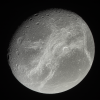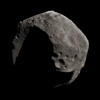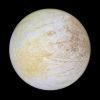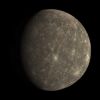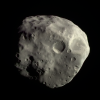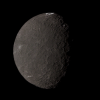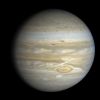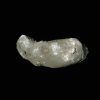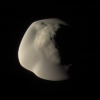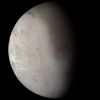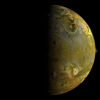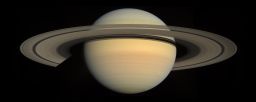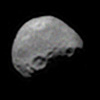Emily Lakdawalla • Dec 13, 2009
Planetary Society Advent Calendar for December 13: Dactyl
If you don't think Pluto gets enough respect, just imagine what it's like to be a satellite of an asteroid. That is way, way down in the solar system food chain, the last thing anybody will claim deserves "planetary" status. So, in the spirit of speaking up for the little guy, I am, today, devoting an entire blog post to Dactyl.
Dactyl, a little ball 1600 by 1400 by 1200 meters in size, was discovered by the Galileo spacecraft in images taken as it sped past the much larger asteroid Ida (53.6 by 24.0 by 15.2 kilometers) in an encounter on August 28, 1993. Dactyl orbits Ida fairly closely, at a distance of only 90 kilometers from the asteroid's center. Due to the high-gain antenna problem, the discovery was not made until several months later, long after Ida was a mote in Galileo's rear-view mirror, when Galileo was able to relay its images of Ida back to Earth. So all 47 images of Dactyl that we have on Earth were purely fortuitous, and couldn't be followed up on. There are hundreds of asteroids out there that are larger than Dactyl, and no particular reason to go back to Ida; it is quite likely that Dactyl will never again be seen by a spacecraft. That's a quick journey from oblivion, to fame, and back to obscurity!
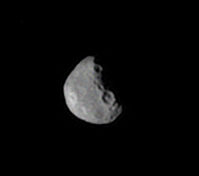
Each day in December I'm posting a new global shot of a solar system body, processed by an amateur. Go to the blog homepage to open the most recent door in the planetary advent calendar!
Support our core enterprises
Your support powers our mission to explore worlds, find life, and defend Earth. You make all the difference when you make a gift. Give today!
Donate

 Explore Worlds
Explore Worlds Find Life
Find Life Defend Earth
Defend Earth


